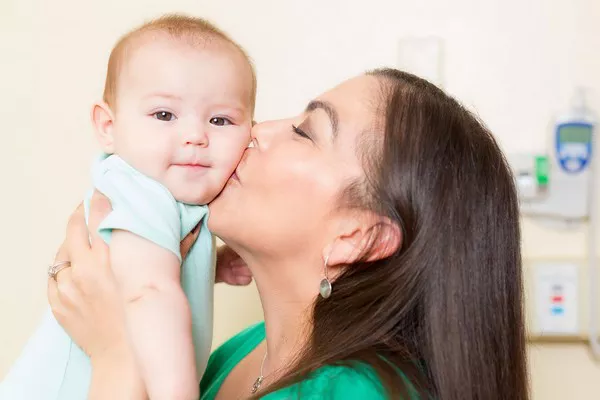Newborns rely heavily on their sense of hearing to learn about the world around them, so it’s essential to ensure that they can hear correctly. Babies who are born with hearing impairments may face developmental delays in speech and language, making early detection and intervention critical for their long-term success. In this article, we’ll discuss the different methods for checking a newborn’s hearing and what to do if you suspect your baby may have hearing loss.
Method 1: Observation
The first step in checking a newborn’s hearing is simply to observe their behavior. In many cases, babies will respond to sounds by startling, waking up, or turning their head towards the sound source. If your baby doesn’t react to loud noises or seems unresponsive to voices, there may be cause for concern. However, keep in mind that some babies may sleep through loud noises, so it’s important to observe your baby over several days to get a more accurate picture of their responsiveness.
Method 2: Otoacoustic Emissions (OAE) Test
An OAE test is a simple and non-invasive method for screening newborns for hearing loss. During the test, a small probe is placed in the baby’s ear canal, which emits a series of clicks. The probe then measures the sounds that are generated by the hair cells in the inner ear. If the hair cells are functioning correctly, they will produce an echo that can be detected by the probe. If no echo is received, it may indicate that the baby has hearing loss.
It’s worth noting that an OAE test can only detect hearing loss in the inner ear. It cannot identify problems in the outer or middle ear, so further testing may be necessary if the OAE test indicates potential hearing loss.
Method 3: Auditory Brainstem Response (ABR) Test
An ABR test is a more comprehensive hearing test that can identify hearing loss in the inner, middle, and outer ear. During the test, electrodes are placed on the baby’s head, and a series of clicks or tones are played through headphones. The electrodes measure the electrical activity in the baby’s brain in response to the sounds. If there is no activity detected, it may suggest that the baby has some form of hearing loss.
Method 4: Behavioral Audiometry
Behavioral audiometry is a hearing test that is conducted on infants who are several months old. During the test, the baby is placed in a soundproof booth, and sounds of varying frequencies and volumes are played through speakers. The audiologist then observes the baby’s behavior to determine whether they can hear the sounds. For example, the baby may be conditioned to turn their head towards the sound source if they can hear the sound.
What to Do If You Suspect Your Baby Has Hearing Loss
If you suspect that your baby may have hearing loss, it’s important to seek medical attention as soon as possible. Early intervention can help prevent delays in speech and language development, so it’s essential to act quickly.
Your pediatrician may refer you to an audiologist for further testing, which may include additional hearing tests, such as a tympanometry test to check for middle ear problems. If the tests confirm that your baby has hearing loss, your doctor will discuss treatment options with you, which may include hearing aids, cochlear implants, or other interventions.
Conclusion
Checking a newborn’s hearing is an essential step in ensuring their overall development. By observing their behavior, conducting OAE and ABR tests, and performing behavioral audiometry, you can ensure that your baby’s hearing is functioning correctly. If you suspect that your baby may have hearing loss, it’s vital to seek medical attention as soon as possible to prevent any delays in their speech and language development.


